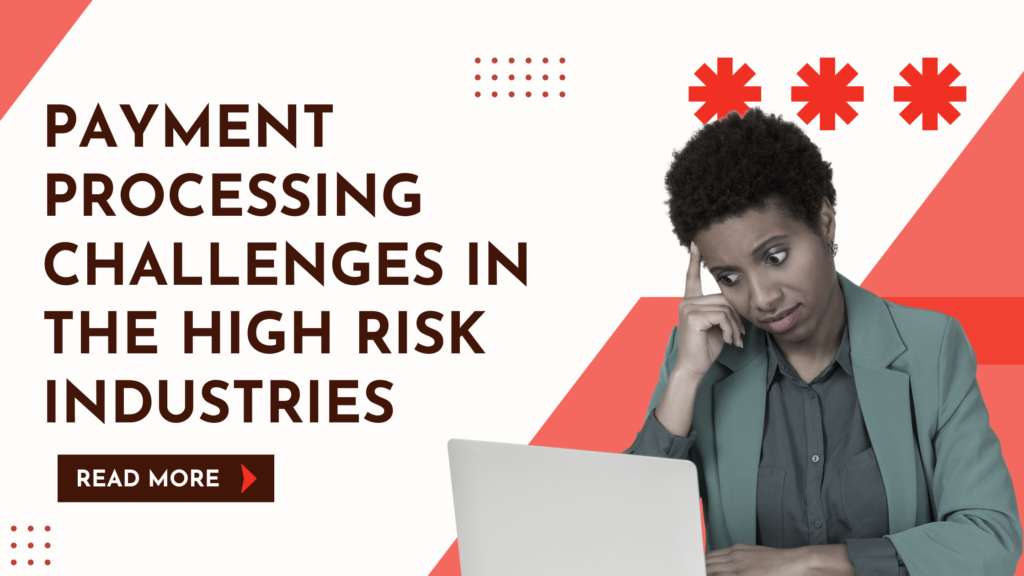Introduction
The high-risk industry presents unique challenges when it comes to payment processing. Businesses operating in sectors such as online gaming, adult entertainment, and Forex trading face specific obstacles that require careful navigation. In this blog, we explore the commonly encountered in payment processing challenges in the high-risk industry and discuss effective strategies to overcome them.
- Regulatory Compliance:
High-risk industries are subject to stringent regulations, making compliance a top priority. Businesses must navigate complex legal frameworks, obtain necessary licenses, and ensure adherence to anti-money laundering (AML) and know-your-customer (KYC) regulations. Building robust compliance processes and partnering with payment processors well-versed in regulatory requirements is crucial. - Fraud Prevention:
The Payment Processing Challenges in the High risk industries are prone to fraudulent activities, including stolen credit cards, identity theft, and chargebacks. Implementing advanced fraud detection and prevention measures is essential to safeguard transactions and protect both businesses and customers. Employing real-time monitoring, AI-driven algorithms, and comprehensive risk assessment can significantly mitigate fraud risks. - Chargeback Management:
Chargebacks can be a significant concern in high-risk industries, leading to financial losses and reputational damage. Businesses must have effective chargeback management strategies in place, including dispute resolution processes, proactive customer communication, and detailed transaction records. Collaborating with payment processors experienced in chargeback prevention can help minimize risks. - Payment Gateway Limitations:
Finding suitable payment gateways that cater to high-risk industries can be challenging. Many mainstream payment processors may decline businesses operating in these sectors or impose restrictive terms. Identifying payment gateways that specialize in high-risk industries and offer customized solutions tailored to specific business needs is crucial for seamless payment processing. - Global Payment Expansion:
Expanding payment operations across borders presents its own set of challenges in the high-risk industry. Businesses need to navigate currency conversions, international regulations, and diverse payment preferences. Partnering with payment processors that offer global payment capabilities and support multiple currencies can facilitate seamless cross-border transactions. - Customer Trust and Data Security:
In Payment Processing Challenges in the High risk industries, building customer trust and ensuring data security are paramount. Businesses must prioritize robust data encryption, tokenization, and compliance with industry standards such as Payment Card Industry Data Security Standard (PCI DSS). Transparent communication about security measures and privacy policies can enhance customer confidence in the payment process.
Conclusion
Payment processing in the high-risk industry comes with its share of challenges, from regulatory compliance to fraud prevention and global expansion. However, with careful planning, strategic partnerships, and the right payment processing solutions, these challenges can be overcome. By staying updated on industry regulations, leveraging advanced fraud prevention tools, and partnering with experienced payment processors, businesses in the high-risk industry can streamline their payment operations, protect their interests, and provide a secure and seamless payment experience for their customers.
Remember, in the face of challenges, there are always solutions. With the right approach and the right partners, high-risk businesses can conquer payment processing obstacles and unlock new opportunities for growth and success.

